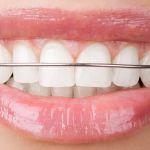Dental Hygiene Education: A Key to Maintaining Oral Health
- The Importance of Dental Hygiene Education
- Proper Brushing and Flossing Techniques
- Preventive Care in Dental Hygiene
- The Role of Dental Professionals in Education
- Implementing Dental Education at Home
1. The Importance of Dental Hygiene Education
Dental hygiene education is crucial for preventing common dental problems such as cavities, gum disease, and tooth loss. By learning about the importance of good oral hygiene practices, patients can significantly reduce their risk of developing serious oral health issues. Educating individuals about proper brushing, flossing, and overall dental care helps to establish lifelong habits that contribute to a healthier smile and better overall health.
One of the key aspects of dental hygiene education is that it empowers individuals to take control of their oral health. With the right knowledge, patients are better equipped to make informed decisions about their dental care and avoid expensive and invasive treatments down the line.
2. Proper Brushing and Flossing Techniques
Proper brushing and flossing are fundamental components of dental hygiene education. Many people think they know how to brush their teeth, but improper techniques can lead to ineffective cleaning. For instance, brushing too hard or using the wrong type of toothbrush can damage the gums and tooth enamel. It’s important for individuals to learn the correct techniques for brushing and flossing to ensure they are thoroughly cleaning their teeth and gums.
The American Dental Association (ADA) recommends brushing teeth twice a day with a soft-bristled toothbrush and fluoride toothpaste. Brushing should be done in a gentle, circular motion, taking care to clean all surfaces of the teeth, including the gumline. Flossing, which should be done at least once daily, helps remove plaque and food particles from between the teeth that a toothbrush cannot reach.
3. Preventive Care in Dental Hygiene
Preventive care is an essential part of dental hygiene education, focusing on stopping oral health problems before they occur. This includes regular dental checkups, professional cleanings, and the application of fluoride treatments or sealants for added protection. Preventive care can significantly reduce the risk of cavities, gum disease, and other oral health issues.
Education about the importance of regular dental visits is key to catching issues early. For instance, gum disease is often asymptomatic in its early stages, and regular visits to the dentist help detect and address it before it causes long-term damage. Dental professionals can provide valuable advice about diet, habits, and lifestyle choices that promote oral health.
4. The Role of Dental Professionals in Education
Dental professionals, including dentists, hygienists, and dental assistants, play a vital role in dental hygiene education. They are not only responsible for providing dental treatment but also for educating their patients about how to properly care for their teeth and gums. This education occurs during routine appointments and is often tailored to each patient’s specific needs and challenges.
Many dental professionals provide tips on brushing, flossing, and even advice on choosing the right toothbrush or mouthwash. Additionally, dental hygienists often take the time to explain the importance of certain preventive measures, such as fluoride treatments, and discuss ways to avoid common oral health pitfalls like smoking or sugary foods.
5. Implementing Dental Education at Home
While dental professionals provide important education during office visits, implementing dental hygiene education at home is equally important. Parents, caregivers, and individuals themselves should encourage proper dental habits from a young age and maintain these habits throughout life. Teaching children how to properly brush and floss their teeth can help establish lifelong habits that will contribute to good oral health.
At home, it’s essential to create a routine for dental care that includes brushing twice a day, flossing once a day, and limiting sugary foods and drinks. Additionally, individuals should be mindful of any changes in their oral health, such as bleeding gums or tooth sensitivity, and seek dental advice when needed. Consistent oral care, along with regular dental check-ups, will ensure a healthy smile for years to come.







 Bacos & Nelson Ltd5.0 (5 review)
Bacos & Nelson Ltd5.0 (5 review) Smiles of Round Lake - Dr Hilehito Gene Lin DDS4.0 (44 review)
Smiles of Round Lake - Dr Hilehito Gene Lin DDS4.0 (44 review) Leading Edge Oral Surgery Massapequa5.0 (1175 review)
Leading Edge Oral Surgery Massapequa5.0 (1175 review) Ernstberger Orthodontics5.0 (326 review)
Ernstberger Orthodontics5.0 (326 review) Dr. Joseph V. Esposito, DDS0.0 (0 review)
Dr. Joseph V. Esposito, DDS0.0 (0 review) Dr. William H. Smythe, DMD5.0 (281 review)
Dr. William H. Smythe, DMD5.0 (281 review) The Importance of Oral Health Education During Pregnancy for a Healthy Pregnancy
The Importance of Oral Health Education During Pregnancy for a Healthy Pregnancy Best Tips for Brushing Your Teeth Properly for Healthy Gums: Essential Techniques for Oral Health
Best Tips for Brushing Your Teeth Properly for Healthy Gums: Essential Techniques for Oral Health Why Skipping Dental Checkups Can Lead to Bigger Oral Health Problems
Why Skipping Dental Checkups Can Lead to Bigger Oral Health Problems Advantages of Porcelain Dental Restorations
Advantages of Porcelain Dental Restorations How Can Diabetes Cause Tooth and Gum Problems? Preventing and Managing Oral Health Issues
How Can Diabetes Cause Tooth and Gum Problems? Preventing and Managing Oral Health Issues Healthy Habits for Promoting Good Oral Health and Hygiene: Tips for a Healthy Smile
Healthy Habits for Promoting Good Oral Health and Hygiene: Tips for a Healthy Smile